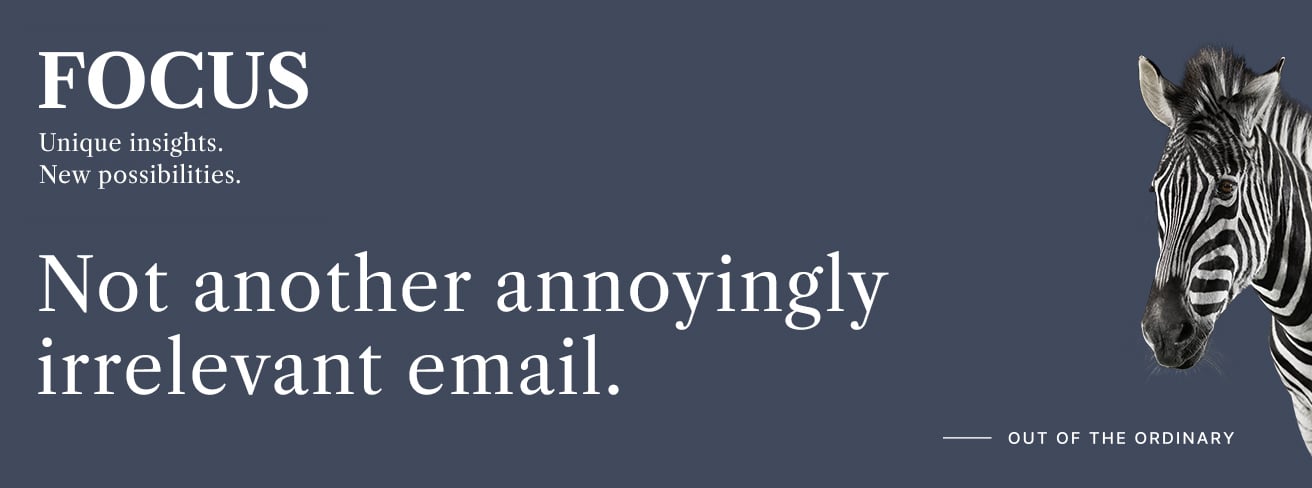
Sign up to the Focus newsletter for regular insights from Investec experts.
Get Focus insights straight to your inbox
How does credit work?
Whether it’s buying a big-ticket item like your first car or flat, getting a student loan, applying for a credit card from your bank, or simply switching to a cellphone contract from a pay-as-you-go arrangement, you’ll need to have a good credit record to be able to access these financial facilities.
The term ‘credit’ simply means borrowing money from a financial institution that you must pay back at an interest rate.
There are two types of credit: secured credit means borrowing against an asset such as a home or a car, while unsecured credit includes things like store cards, credit cards or personal loans.
For all types of credit, you’ll first make an application to the lender, who will then check your credit standing before deciding whether to let you borrow money from them.
Your credit history will also determine the type of interest rate that you’ll be offered when paying back the money you borrow. In general, the healthier your credit history, the better the interest rate you’ll be offered.
Understanding a credit report
There are four main credit bureaus in South Africa: Experian, TransUnion, Compuscan XDS. Every month, credit providers send transaction details to these bureaus, who then compile the information into a credit report, consisting of a consumer’s credit history and habits.
When you apply for credit, the financial institution you’re applying through will pull a credit report from one of these four bureaus. The report typically includes:
- A two-year history of all the credit you’ve applied for
- The credit accounts you have and your payment history with them (including any late or skipped payments)
- Any court judgments or defaults you may have against you

Did you know you’re entitled to one free credit score a year?
As a South African consumer, you’re entitled to one free credit report per year with any of the major credit bureaus. You can also dispute any facts on the report that are inaccurate or outdated.
How does a credit score work in South Africa?
A credit score is a summary number based on your credit report, which contains information about the debt you’ve had, how you’ve paid it back, as well as your age and employment status.
Most credit bureaus rate your credit score between 300 and 850:
- A low score is generally considered to be between 300 and 579
- A fair score is between 580 and 669
- A good score is anything above 700
The higher your credit score is, the healthier your credit is, which means you’re more likely to be approved for a credit application – and you’re also more likely to get a preferential interest rate at which to pay it back.
It’s worth noting that credit providers will also look at other factors. like your debt to income ratio – so even if you have a good credit score, a high level of debt can negatively affect your credit risk.

How do you ensure you have a healthy credit history?
Credit history
Your credit history is a history of how much money you’ve loaned in your life, and how you’ve managed your repayments for it.
A good credit history means you have been mostly diligent about paying back debt, your skipped or late payments will be few and far between.
Keep in mind, your credit history also considers the following.
- Court judgments or defaults against your name by financial institutions in the past
- How many years you’ve had access to credit for
- How much debt you have
- How many credit applications you’ve made within a certain period

Do your homework to find out the factors that inform your credit score in South Africa.
How can you build credit?
Having a good credit rating can save you money in the long run, as you’re likely to be offered a good interest repayment rate.
Since financial institutions consider how long you’ve had access to credit for, not having any or enough credit can affect your rating and overall score. So, how can you build good credit? Here are five possible ways to start building credit if you have not held credit in the past:
- Apply for a credit card or loan with your bank with whom you already have a savings, cheque or current account
- Get a retail credit card, such as an account with a clothing store
- Open a joint account with your spouse or partner as the co-signer (you could ask your parents if you are single)
- Increase your existing credit limit
- Maintain a healthy mix between unsecured and secured credit
How can you build credit with no credit?
If you’ve never had to borrow money before, you may not have a credit score at all, which makes it difficult to borrow money in the future.
This doesn’t mean that you’re in bad financial standing – just that there’s not enough data for financial institutions to decide whether to lend you money.
If you’re in this situation, you could opt for a prepaid or secured credit card, where you top up with your own available money while building up a credit rating. Alternatively, you could try and get a credit card with a very low credit limit. While building credit with no previous credit can be daunting, it’s not impossible.
Maintaining the health of your credit
The most important thing to do for boosting and maintaining your credit health is to use the credit you do have responsibly.
Here are some guidelines for doing this:
- Remedy any negative listings: If you have any defaults or judgments against you, settle these outstanding amounts as soon as you can. After this is done, make sure that you get proof of settlement, which you can then use to clear the negative listing with the relevant credit bureau.
- Check your credit report regularly to see that all information is up to date.
- Make repayments on any credit accounts by the due date. A good way to be disciplined in doing this is to set up standing debit orders where the payments are made automatically each month.
- Make sure you pay the full instalments every month. For example, only paying half the instalment one month and then the remaining payment the following month will prejudice your credit score.
- Have a repayment plan you can realistically manage. If you’re struggling to repay your debt each month, try and negotiate a new repayment plan with your credit provider – for example by reducing the monthly repayment amounts while increasing the length of the loan.
- Close any credit accounts that you’re not using, such as store cards from a shop you no longer buy from regularly, or old credit cards.
- Reduce your overall credit balance as much as possible. If, for example, you receive an unexpected lump sum or a bonus at the end of the year, use part or all of it to reduce the overall credit amount that you owe.
- Limit the amount of credit you’re using. Aim for a ratio of 35%, where if you have a credit card with a R10 000 credit limit, you aim to keep the balance at R3 500 or less on any given month.
- Limit the number of credit applications you make. Keep in mind that your credit report shows how many credit applications you’ve made in the last two years. It may sound counterintuitive, but if you shop around for too much credit at once, it may look like you’re struggling to manage the amount of debt you currently have.
- Avoid too much unsecured debt: Secured loans like a home or car loan are always preferable to unsecured loans, so make sure that the balance is weighted this way in your financial portfolio.

Too much unsecured debt can be crippling.
Live within your means
Above all, building and maintaining good credit doesn’t mean not borrowing money – it means living within your means.
While a credit facility is important to help you to buy a house or car – or a student loan to help you get a tertiary education – buying luxury or non-essential items like clothing or furniture on credit can make your debt quickly spiral out of control and you may struggle to repay it.
To make yourself an attractive future lender, be realistic about your means and, more importantly, be disciplined about how you manage the debt you do have.
Additional sources: Briefly.co.za; Transunion.co.za, BusinessTech.co.za

